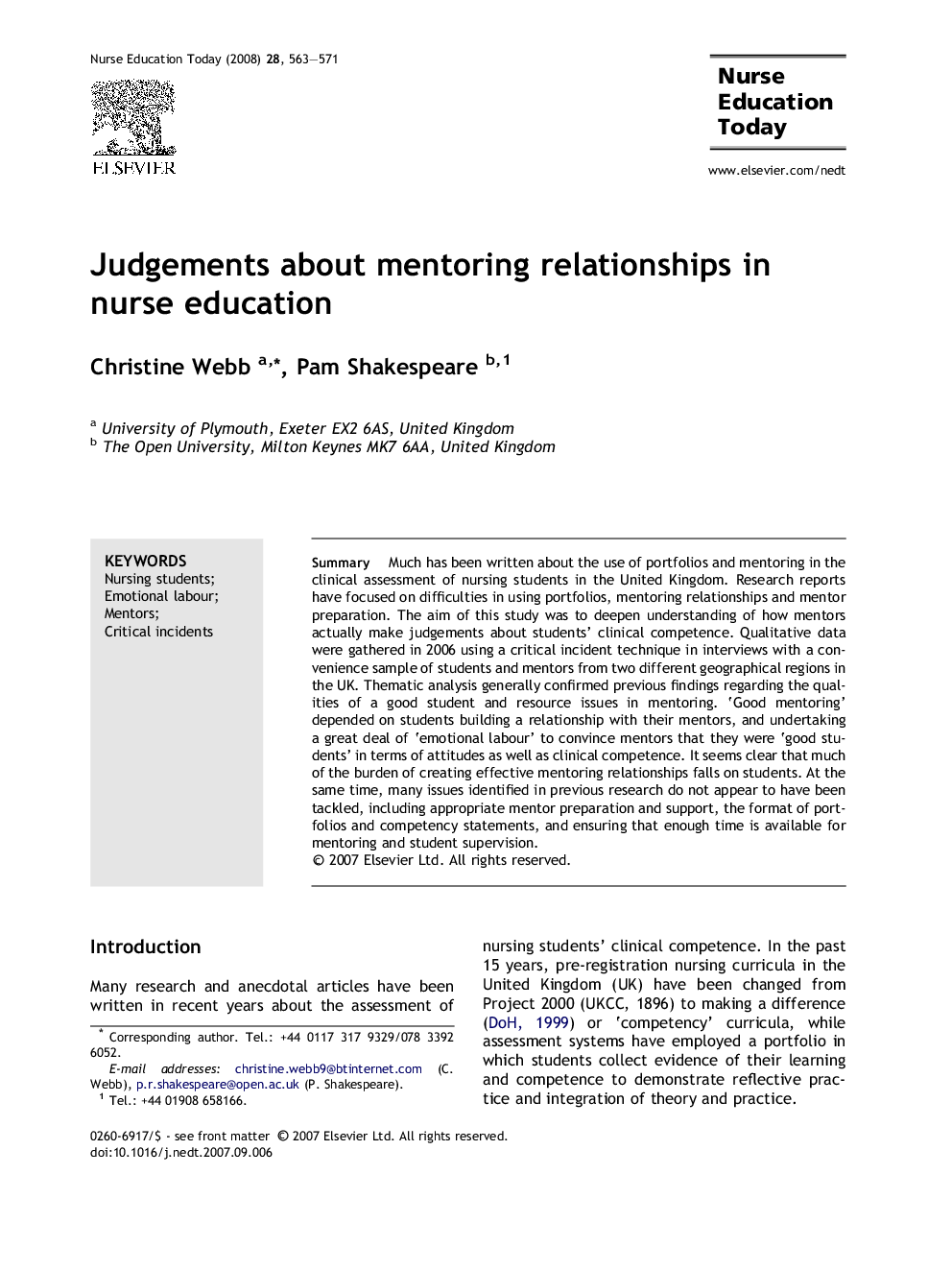| Article ID | Journal | Published Year | Pages | File Type |
|---|---|---|---|---|
| 369464 | Nurse Education Today | 2008 | 9 Pages |
SummaryMuch has been written about the use of portfolios and mentoring in the clinical assessment of nursing students in the United Kingdom. Research reports have focused on difficulties in using portfolios, mentoring relationships and mentor preparation. The aim of this study was to deepen understanding of how mentors actually make judgements about students’ clinical competence. Qualitative data were gathered in 2006 using a critical incident technique in interviews with a convenience sample of students and mentors from two different geographical regions in the UK. Thematic analysis generally confirmed previous findings regarding the qualities of a good student and resource issues in mentoring. ‘Good mentoring’ depended on students building a relationship with their mentors, and undertaking a great deal of ‘emotional labour’ to convince mentors that they were ‘good students’ in terms of attitudes as well as clinical competence. It seems clear that much of the burden of creating effective mentoring relationships falls on students. At the same time, many issues identified in previous research do not appear to have been tackled, including appropriate mentor preparation and support, the format of portfolios and competency statements, and ensuring that enough time is available for mentoring and student supervision.
